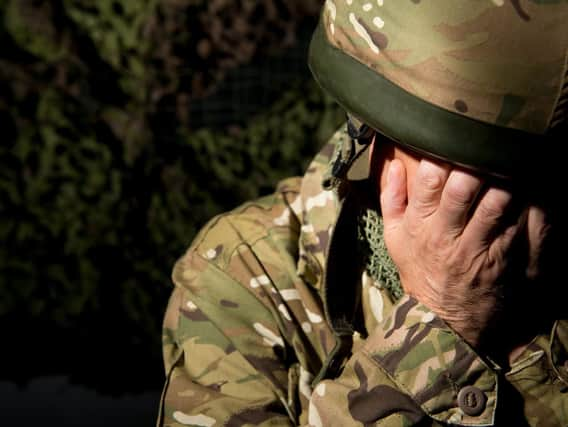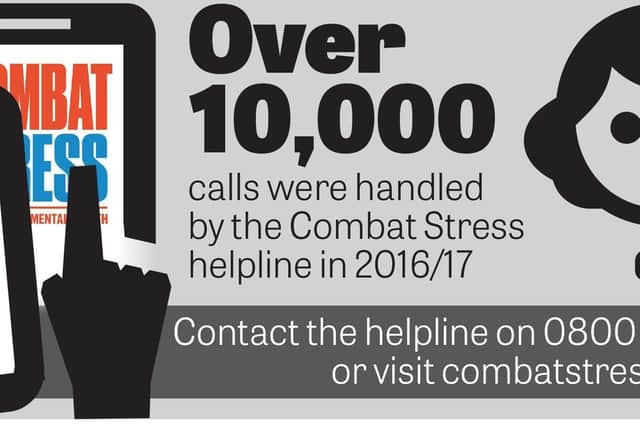Hartlepool MP's 'our veterans deserve better' call to Government over mental health issues


An investigation on behalf of Johnston Press, the Mail’s parent company, has found no comprehensive official records are kept for the number of British ex-servicemen and women ending their lives.
Coroners, for instance, are not obliged to flag up a person’s military past if they kill themselves in later life.


Advertisement
Hide AdAdvertisement
Hide AdThis is in stark contrast to allies such as America and Australia where official figures do exist.
In the United States, veteran suicide rates have increased by nearly 20 per cent since the onset of lengthy military campaigns in Iraq and Afghanistan.
Our research has prompted a spate of experts and politicians to call for greater monitoring of veteran suicide rates so that the Government and Ministry of Defence can judge how much help is needed for ex-personnel suffering mental issues such as Post Traumatic Stress Disorder (PTSD).
They include Hartlepool Labour MP Mike Hill, who said: “Our veterans deserve better.”
Advertisement
Hide AdAdvertisement
Hide AdOur research suggests that in this country coroners are investigating an average of one suspected veteran suicide every 11 days in 2018.
This compares to an average of one personnel death every 14 days due to enemy action during military action in Iraq and Afghanistan between 2001-14.
While the Ministry of Defence (MoD) insists Armed Forces suicides here are “significantly lower” than the eight per cent nationwide average, a leading clinician at veterans’ charity Combat Stress insists the Government is relying on data nearly a decade old and needs to do more to analyse the problem.
Dr Dominic Murphy said: “From the mid-noughties onwards there has been a higher rate of suicide among American, Canadian and Australian veterans and some of our European allies and we just don’t know the situation in the UK because the last study was in 2009.”
Advertisement
Hide AdAdvertisement
Hide AdMr Hill said: “I have encountered very few individuals seeking assistance, but then I am not surprised by that.
“Veterans in particular tend to hide what is bothering them, even from the people who know them most.
“They are often loners, who prefer their own company, particularly those suffering PTSD and that puts them at a higher risk of becoming rough sleepers as they would much rather sleep on the streets than be put up in a hostel with others.
“I think it is appalling and beyond understanding that there are no official records kept of the number of suicides among former servicemen and women and I agree entirely with organisations like Combat Stress that the Government needs to undertake an urgent review of their record keeping in order to properly monitor levels of suicides.”
Advertisement
Hide AdAdvertisement
Hide AdHe urged those keeping quiet about their problems: “Try not to bottle things up, speak to someone who can help. Nobody is here to judge you, threaten you or order you around.
“Support and help is out there for you and you should not be afraid to take it.”
Figures from Combat Stress show that 19 per cent of the 3,000-plus veterans it currently treats have had moderate to severe suicidal thoughts.
A MoD spokesperson said: “While rates of suicide are significantly lower in the Armed Forces than the general population, any suicide is a tragedy for the individual, their family, friends and colleagues and we take each case extremely seriously.
Advertisement
Hide AdAdvertisement
Hide Ad“The reasons people take their lives can vary and are not necessarily linked to their service. Help is available for serving personnel, their families and veterans, including through the two 24-hour mental health helplines provided by Combat Stress.”
Among measures launched in the last 18 months is an online Veterans’ Gateway to streamline access to help and a tailored NHS service to help personnel leaving the armed services.
A Veterans’ ID card to allow ex-servicemen and women identify themselves and access services is also in the pipeline.